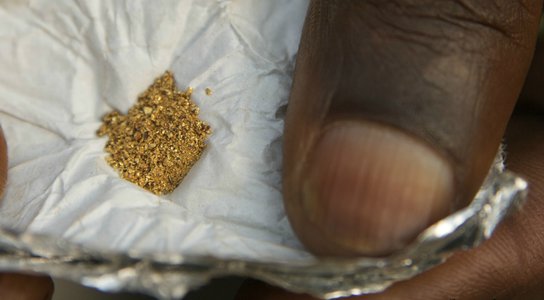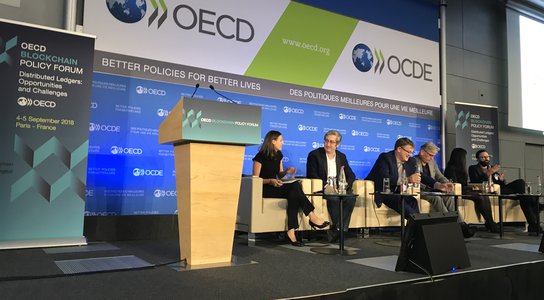The London Bullion Market Association (LBMA) and Responsible Minerals Initiative (RMI) hold their annual conferences this week in Boston, MA and Santa Clara, CA, respectively. Both groups operate responsible mineral sourcing schemes that will be subject to discussion this week.
The LBMA’s Responsible Gold Guidance (RGG) and RMI’s Responsible Minerals Assurance Process (RMAP) are tools offered by each association to member companies to support their efforts to carry out risk-based supply chain due diligence. These tools can contribute towards increased transparency and accountability throughout gold, tin, tantalum and tungsten mineral supply chains [1].
However, Global Witness warns delegates at this week’s conferences not to consider membership of industry schemes such as these as a proxy for responsible business conduct. Global Witness reminds LBMA and RMI members that in line with UN Guiding Principles and the OECD due diligence guidance, the responsibility to identify, address and remediate supply chain red flags, including instances of corruption and human rights abuses, lies with an individual company. A recent OECD Alignment evaluation of industry schemes that included the RGG and RMAP found significant gaps between the schemes’ paper-based standards and practical implementation of supply chain due diligence by individual member companies, for example.
Policy Advisor Carly Oboth said:
“Industry schemes are service providers: they are not a substitute for supply chain checks that must be undertaken by individual companies The OECD’s Alignment Assessment makes clear that membership of an industry scheme does not guarantee that every member company of a scheme is sourcing minerals in line with international standards. This must remain clear during this week’s conferences.”
The OECD findings underscore the importance of publicly available reports that describe steps taken by a company to responsibly manage risks throughout its supply chains. Unlike binary descriptors such as conformant or non-conformant, or labels like “conflict-free”, these reports should show investors, stakeholders and consumers how a due diligence policy is put into practice, generating confidence by showing how companies are working toward mitigating, and becoming more resilient to, risk. Despite their importance, these reports have not always been prioritized by industry schemes and are often difficult to access [1].
“Regulators must also avoid reliance on industry schemes alone to distinguish responsible actors and must encourage schemes to become more transparent, especially around company delisting and non-compliance. Industry schemes like RMI must be forthcoming about changes to their list of conformant smelters and refiners, and clarify why companies have been delisted. Failure to alert stakeholders to these changes risks market confusion and could leave significant risks unacknowledged, leaving downstream companies vulnerable to reputational and financial damage,” said Oboth.
When implementing the EU's
responsible sourcing regulation, for
example, the European Commission must ensure that its “accredited industry
schemes” and “list of global responsible smelters and refiners,” are regularly
and independently re-assessed and updated in order to be reliable, and that
Commission lists are informed by changes of industry
schemes’ lists due to delisting and non-compliance .
Publication of delisted or non-conformant companies by schemes will help
to ensure that EU information is harmonized and accurate.
Oboth added:
“As industry-wide efforts to clean up mineral supply chains grow in number and influence [2], we must ensure they remain tools to enhance, and not detract from, individual companies’ due diligence. The LBMA and RMI must use their annual gatherings to ensure that member smelters, refiners and traders prioritize improving responsible sourcing practices to bring them in line with international responsible sourcing standards in practice, not just on paper.”
/ ENDS
Contacts
Notes to editor:
[1] The Responsible Mineral Initiative responsible sourcing scheme covers tin, tantalum, tungsten and gold smelters and refiners. The London Bullion Market Association responsible sourcing guidance covers gold refiners.
RMI’s RMAP standards for tin, tantalum, tungsten and gold were updated last year to include an explicit public reporting requirement and these standards went into effect on June 1, 2018. As of today, there are only a few due diligence reports by RMI members available on their website, though this should increase as more companies begin to be assessed under this new protocol. The LBMA’s Responsible Gold Guidance does require members to report publicly on their due diligence, however, many of the reports made available are audit reports for gold refineries that have passed the responsible gold audit. Audit reports lack the details needed to help companies identify and responsibly manage supply chain risks and offer no significant evidence to demonstrate the quality of a company’s supply chain checks.
[2] The London Metal Exchange (LME) has recently announced its plans to encourage responsible sourcing by its members. Global Witness has called on the LME to require its brands to publish individual due diligence reports on an annual basis, but where the LME makes use of industry scheme membership to indicate responsible sourcing, this necessitates increased transparency and public reporting by the schemes.
You might also like
-
Press release Global Witness statement on OECD Alignment Assessment of Industry Programmes with the OECD Minerals Guidance
Global Witness statement on the launch of the OECD's Alignment Assessment of Industry Programmes with the OECD Minerals Guidance.
-
Blog post What does blockchain mean for the future of responsible mineral sourcing?
New initiatives using blockchain in the world of responsible mineral sourcing have made headlines, promising to transform business as we know it. This sounds great in theory, but establishing equitable and fair mineral supply chains is not that simple
-
Press release Global Witness statement for London Metal Exchange responsible sourcing seminar 2018
Global Witness welcomes the LME’s recognition of the need for responsible sourcing but warns that proposals outlined in its October 2018 Position Paper will be ineffective in their current form.